
Diversity & Inclusion Advocacy Recognition
Application Dates
01 May 2024 - 30 Jun 2024Get Involved
About the Program
This recognition serves to acknowledge programs and accomplishments within our community that foster greater appreciation, advancement and celebration of diversity and inclusivity. Honorees should have a consistent record of support and leadership. Activities recognized may include community service, professional development, hiring practices or programs enhancing the understanding and inclusion of people of diverse cultures, backgrounds and experiences. Each winner will receive USD 1,500 to support their diversity efforts and travel funds to attend Frontiers in Optics + Laser Science (FiO + LS).
The review committee will consider the following criteria: 1. Visibility & Awareness; 2. Mentoring/Professional Development; 3. Celebration of Diversity; 4. Enhances Communication; 5. Innovation & Creativity; 6. Impact of Actions; 6. Replicability of Efforts.
Application Information
How To Apply
Applications will be available at apply.optica.org
Important Dates
Opens 01 May 2024
Closes 30 June 2024
2023 Winners
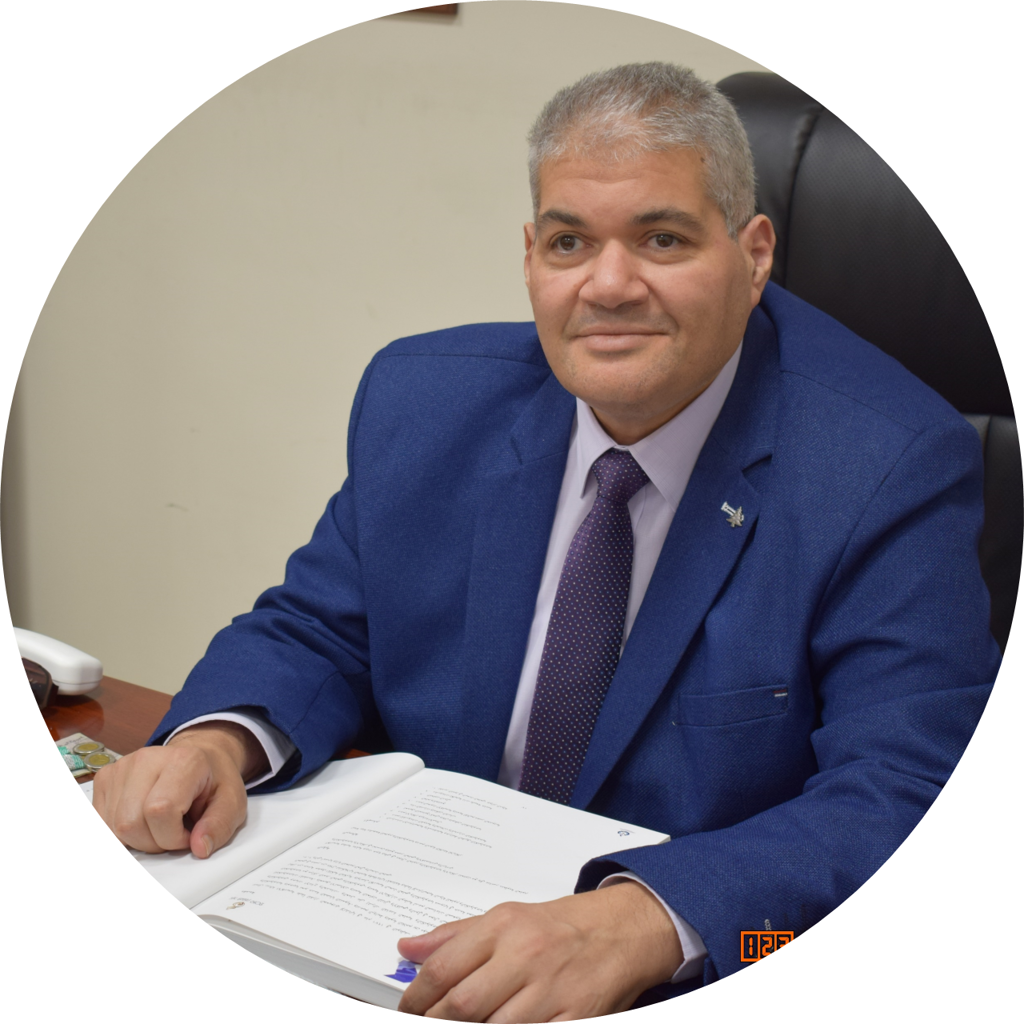
Salah Obayya
Zewail City of Science and Technology, Egypt
For his impactful leadership, rooted in equity and inclusivity, fostering diversity and empowering individuals, especially women, from diverse African backgrounds in the photonics field.
Professor Salah Obayya stands as a distinguished academic in the realm of photonics, with a profound focus on advancing computational modeling techniques for the analysis, design, and optimization of an extensive range of photonics devices. He is also attributed to founding two research centers: the Photonics and Broadband Communication Center (PBC) at the University of South Wales, UK in 2008, and the Center for Photonics and Smart Materials (CPSM) at Zewail City of Science and Technology, Egypt in 2012.
As a professor and a Director of these centers, Obayya has had an incredible impact on promoting diversity, equity, and inclusion in Egypt and beyond. As a professor and advisor, he has overseen the academic journeys of 120 students. Remarkably, over half of these students were women from diverse global regions such as Africa, the Middle East, Europe, and South East Asia. Women who had previously encountered limited opportunities and resources to engage in photonics and optics research. These women have climbed to remarkable heights in their careers, assuming professorships and leadership roles within engineering departments in their respected academic institutes and beyond, gaining international recognition.
Presently, he serves as the Chair of UNESCO for Innovative Technologies for Sustainable Development in Africa. In this capacity, he has harnessed his influence to empower bright African female students with profound insights into photonics research. His efforts have earned him the prestigious rank of "Fellow" from notable institutions, including OPTICA, IEEE, APS, and IOP, for his contributions to research and his dedication to advancing photonics research and education among African women.
Professor Salah Obayya is unwavering in his commitment to promoting gender equality and developing an inclusive academic environment where everyone is valued and empowered. His dedication is evident as he cultivates his teams, ensuring a balanced representation of genders and presenting his unwavering support for female scientists.
His persistent dedication to his students, profound contributions to academia, and advocacy for gender equality position him as a model champion of diversity and equity. Beyond his stature as a model of academic excellence, Professor Obayya is passionate about crafting an inclusive learning environment. Acknowledging his exceptional achievements and contributions with this esteemed award underscores the essential role of gender equality in the academic sphere.
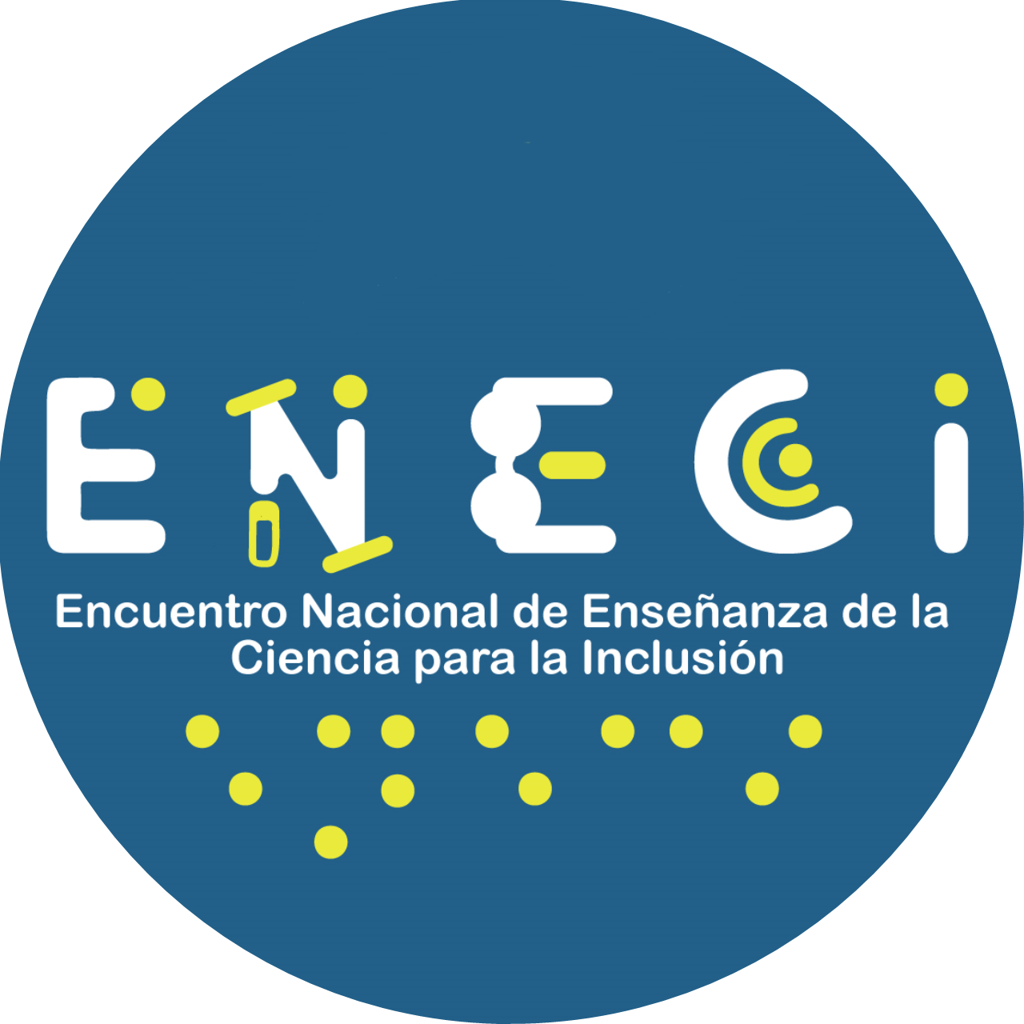
ENECI
Colombia
For inclusive science education initiatives, with a focus on students with disabilities, that led to the creation of accessible and impactful learning environments.
The ENECI (National Encounter on Science Education for Inclusion) initiative centers on developing collaborative relationships among individuals with disabilities, educational institutions, teachers, nonprofit organizations, and local communities. Their overarching goal is to dismantle barriers and establish accessible learning environments that cater to all students while exploring the interplay between science and disability. The ENECI emerged in 2019 through the joint efforts of the GOMa UD - Grupo Óptica de Materiales student chapter at the University Distrital Francisco José de Caldas and the CIOR Risaralda student chapter at the Technological University of Pereira.
In 2020, amidst the backdrop of the pandemic, the GOMa-UD and CIOR-UTP Student Chapters orchestrated an event focusing on imparting astronomy and optics knowledge to individuals with visual and hearing impairments. This initiative was mainly aimed at marginalized groups, including underprivileged children, youth, and people with disabilities. Through their dedication, these chapters created opportunities and heightened awareness concerning optics and its practical applications within these communities. They have organized workshops within public libraries and schools in Bogota and Pereira, Colombia, delivering invaluable educational prospects to students without such resources. This endeavor garnered national and international attention, fostering stronger connections among different communities and facilitating collaborative initiatives.
ENECI functions as a cross-cultural platform where educators from varying backgrounds can exchange insights on science education, specifically emphasizing optics and astronomy for individuals with diverse disabilities. The combined efforts of GOMa-UD and CIOR-UTP created an avenue for learning and fostering a global community comprised of educators, researchers, and advocates committed to advocating for inclusion within science education. This has led to gathering international interest, with participants from nations including Colombia, Chile, Spain, Mexico, the United States, Puerto Rico, Guatemala, Uruguay, Venezuela, El Salvador, Austria, China, and Italy. The representation of disabilities within their gatherings extends beyond visual and auditory impairments, encompassing conditions like autism, motor difficulties, cognitive challenges, and more.
ENECI is dedicated to its pursuit of championing diversity and inclusion. Their unwavering devotion to opportunities, wide-ranging representation, and embracing diversity leaves a profound mark on the lives of students and educators. At the same time, they aspire to construct an equitable society. Their endeavors have significantly contributed to advancing diversity and inclusion within science and optics education.
Learn more about ENECI's work:
Edmund Optics’ commitment to diversity recognizes the need to be intentional about building a truly inclusive environment that enables every person to contribute to their fullest potential. Diverse and inclusive teams provide better solutions and services, which are critical to Edmund Optics’ vision. They are committed to becoming the most diverse, equitable, and inclusive workplace within the Optics and Photonics Industry and beyond. Edmund Optics pledges to ensure every voice is heard regardless of race, religion, global region, sex, sexual orientation, education, ability, age, seniority, or tenure. Every leader, every partner, and especially, every employee is relied upon to make Edmund Optics better.
In late 2019, Edmund Optic’s DEI initiative was formalized, creating their DEI Committee. In late 2020, the DEI Committee engaged experienced consultants to conduct a 3-phase process to assess EO through a DEI lens to establish a benchmark through surveys, leadership interviews, and virtual employee focus groups to develop impactful strategies and programs. What started as a US committee is now a global council. They are currently working with their expert consultant to support global DEI initiatives. Each office in their US, Europe, and Asia locations has its own DEI site lead working on region-specific initiatives.
Current initiatives and best practices include: Certifications of HR staff to help ensure recruitment and training systematically consider DEI. A Job Target Diversity Job Board which they use to take postings and disperse them to various sites which allows listings to reach candidates that they may never have gotten otherwise. This site also provides language reviews to ensure postings are not biased toward specific groups and suggests posting changes to guarantee the widest breadth of candidates. Edmund Optics also hold an Inclusive Leadership Manager Training for all senior leaders in the US. These leaders are put through an intensive 8-hour leadership session to challenge them to understand and help minimize barriers for all employees. Additional training has been developed using DEI training certification data and employee assessment data to work with all managers on unconscious bias, creating inclusive communities, and supervising, with DEI at the forefront.
Learn more about Edmund Optics’s work:
- Edmund Scientific Outreach, Edmund Optics
- Marisa A. Edmund Establishes the Advancing Women in Optics Scholarship for University of Arizona Wyant College, Edmund Optics, May 2022
- Women in Optics, Katie Schwertz, Edmund Optics, Photonics Spectra, Sep. 2019
- Development of a company-sponsored optics educational outreach program, SPIE, Aug. 2020
Past Recipients
2022 Winners
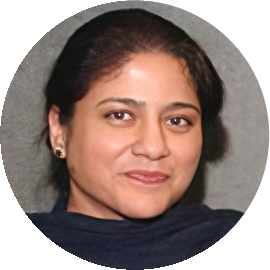
Imrana Ashraf
Quaid-i-Azam University, Pakistan
For her tireless work to promote optics and photonics careers in emerging economy nations, with a special emphasis on women, the transgender community and rural areas.
A devoted scientist and educator, Dr. Ashraf is committed to the ideals of diversity and inclusion. Through her work and personal leadership, she instills values of inclusivity in her students and colleagues alike. In addition to being an associate professor at Quaid-I-Azam University, Pakistan, Dr. Ashraf Senior Associate at The Abdus Salam Center for Theoretical Physics (ICTP) from 2019-2024, managing director of International Commission for Optics (ICO) in Pakistan and a senior member of OPTICA.
In 2016, she established Active learning in Optics (ALO), a self-funded program under the umbrella of ICTP and QAU to bring physical sciences to girls’ high schools and colleges as well as remote areas of Pakistan. She and her team have regularly organized outreach activities in KPK, one of the worse affected insurgency regions. Imrana organizes workshops during the Preparatory School in Optics at the International Centre for Theoretical Physics (ICTP), for those in need of additional instruction benefiting hundreds of young scientists and students from South Asia, Africa, the Middle East, Latin America and Eastern Europe. She also founded Pak-ICTP Alumni Society (PIAS) in 2021. The society aims to establish an alumni network to nurture research collaborations in Pakistan.
Imrana ensures and prioritizes a gender balance in both lecturers and participants in the international events she organizes including the International Workshop in Optics and Photonics (IWOP), in Marrakech in 2010 and in Islamabad in 2017. She served as a facilitator for UNESCO teacher-training workshop ALOP in Islamabad in connection with IYL in 2015. Working to create more leaders, Imrana’s research group within Pakistan engage in outreach activities, including at distant rural areas, that seek to promote inclusion and diversity. This has included events aimed at women and girls and members of the transgender community.
You can read more about her work:
- New ICTP Alumni Network, The Abdus Salam International Centre for Theoretical Physics (2021)
- Let the Light be Always On, ICO Newsletter (April 21)
- There is always Light around the corner, ICO Newsletter (July 2019)
- Researcher, Teacher, Mentor ICTP recognition (2017)
- Bringing the Joy of Scientific Inquiry to Girls in Pakistan, APS news (July 2017)
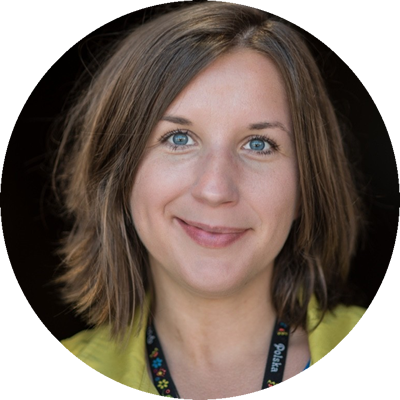
Danuta Sampson
University College London, United Kingdom
For her work in raising public awareness of vision impairment and creating opportunities to spark interest in and foster exploration of STEM by girls and children from low socioeconomic ba
Dr. Danuta Sampson believes that we all have a role to play in creating and sustaining a better global community. Beyond her work as a biomedical optics researcher, she spent the last 15 years promoting equality, diversity, and inclusion in the community, exposing children and young professionals from underrepresented backgrounds to photonics, inspiring them and improving their sense of belonging in society worldwide.
Being the first in her family to graduate from university and being discouraged by many professors at university from pursuing physics helped shape Danuta’s priorities. She directs many of her community-focused efforts toward supporting people from disadvantaged backgrounds driven by these experiences. Danuta initiated the Daphne Jackson Day, now an annual event at the University of Surrey (UK), to inspire everyone to find their passion for STEM and celebrate the legacy of Professor Jackson – the first female professor of Physics in the UK. She established "STEM portable libraries" with science-related books and outreach to support the education and STEM curiosity of children from disadvantaged backgrounds in Guildford, UK. She initiated and led the team to create the Women in STEM Challenge, an open-source game that helps educate school children about amazing women in STEM, their discoveries, and inventions.
Danuta also marries her work in visual science with working with children with vision impairment who often feel excluded by their peers due to their disability. In 2011 (during her PhD), she initiated a national contest in Poland to design optical toys for kids with significant visual impairment. It was an immense success, with 43 entries and toys donated to a local kindergarten to support children's development. Recently, with the support of her mentees, she finalized a school outreach program to teach about vision impairment and has made the materials she created available to everyone.
Learn more about Danuta Sampson’s work:
- Living History, Danuta Sampson
- Together we can make a difference, Daphne Jackson Day 2020 video
- Overcoming Challenges with Danuta Sampson, OPN March 2022
- A blueprint for better eye health, Danuta Sampson, TEDx talk in 2017 at The University of Western Australia
- The Art of Optics Outreach, Danuta Sampson 2017 Optica Ambassador.
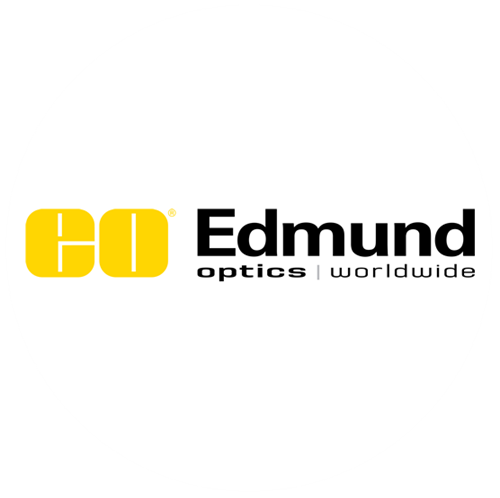
Edmund Optics
United States
For their dedication and investment to establish and maintain region-specific initiatives, programs and policies around the world to create a more diverse and inclusive workplace.
Edmund Optics’ commitment to diversity recognizes the need to be intentional about building a truly inclusive environment that enables every person to contribute to their fullest potential. Diverse and inclusive teams provide better solutions and services, which are critical to Edmund Optics’ vision. They are committed to becoming the most diverse, equitable, and inclusive workplace within the Optics and Photonics Industry and beyond. Edmund Optics pledges to ensure every voice is heard regardless of race, religion, global region, sex, sexual orientation, education, ability, age, seniority, or tenure. Every leader, every partner, and especially, every employee is relied upon to make Edmund Optics better.
In late 2019, Edmund Optic’s DEI initiative was formalized, creating their DEI Committee. In late 2020, the DEI Committee engaged experienced consultants to conduct a 3-phase process to assess EO through a DEI lens to establish a benchmark through surveys, leadership interviews, and virtual employee focus groups to develop impactful strategies and programs. What started as a US committee is now a global council. They are currently working with their expert consultant to support global DEI initiatives. Each office in their US, Europe, and Asia locations has its own DEI site lead working on region-specific initiatives.
Current initiatives and best practices include: Certifications of HR staff to help ensure recruitment and training systematically consider DEI. A Job Target Diversity Job Board which they use to take postings and disperse them to various sites which allows listings to reach candidates that they may never have gotten otherwise. This site also provides language reviews to ensure postings are not biased toward specific groups and suggests posting changes to guarantee the widest breadth of candidates. Edmund Optics also hold an Inclusive Leadership Manager Training for all senior leaders in the US. These leaders are put through an intensive 8-hour leadership session to challenge them to understand and help minimize barriers for all employees. Additional training has been developed using DEI training certification data and employee assessment data to work with all managers on unconscious bias, creating inclusive communities, and supervising, with DEI at the forefront.
Learn more about Edmund Optics’s work:
- Edmund Scientific Outreach, Edmund Optics
- Marisa A. Edmund Establishes the Advancing Women in Optics Scholarship for University of Arizona Wyant College, Edmund Optics, May 2022
- Women in Optics, Katie Schwertz, Edmund Optics, Photonics Spectra, Sep. 2019
- Development of a company-sponsored optics educational outreach program, SPIE, Aug. 2020
2021 Winners

Fujitsu Network Communications
United States
For their investment in programs and initiatives celebrating and advancing Black, LGBTQ+ and women employees in pursuit of greater inclusion and equality within their company and the wider community.
About Fujitsu Network Communications
Fujitsu promotes multiple initiatives that collectively move beyond statements on diversity by championing unique programs that celebrate and advance diversity and inclusion within their company and the wider community. Examples include the Fujitsu Women’s Innovative Network (WIN) to support, empower, guide and inspire women and girls to achieve their full professional and personal potential and the Black Employee Inclusion and Networking Group (BEING) which empowers Black employees to embrace Black diversity and elevate Black culture. Finally, the 2021 Human Rights Campaign Index listed Fujitsu as one of the top employers for LGBTQIA+ equality.
“Fujitsu is honored to receive this award from Optica as a testament to our ongoing commitment to diversity and inclusion,” said Doug Moore, CEO, Fujitsu Network Communications, Inc. “At Fujitsu, we strive to build an inclusive culture where everyone can be completely themselves and achieve individual growth, regardless of their gender identity, sexual orientation, ethnicity, health and age.”
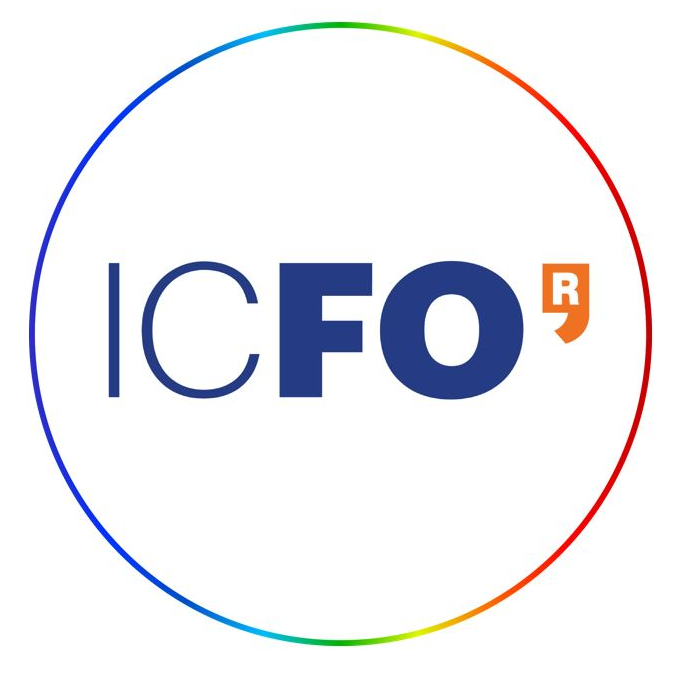
ICFO- The Institute of Photonic Sciences
Spain
For their deliberate and intentional work to integrate equitable, transparent and inclusive policies and programs throughout their institution’s hiring, mentoring and technical programming.
As a truly international research center, focused on optical and photonics sciences and its applications, ICFO strives to create and implement policies, programs and projects in their HR, education, innovation and outreach branches. Collectively, these policies and activities attract, empower and promote diversity as essential to enhancing innovation, creativity and excellence. Efforts include gender diversity activities such as the mentoring program for female researchers with young children, career development tools and participation in Optica’s governance and programs such as the International Optica Network of Students (IONS) featuring equality and gender sessions and an ongoing LGBTQIA+ program. Their efforts go beyond their institute with their participation in efforts including the Science by Women Program of the Women for Africa Foundation (FMxA) to promote African women’s leadership in scientific research and technology transfer.
2020 Winners
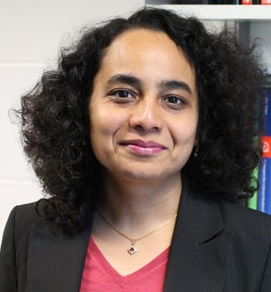
Arti Agrawal
University of Technology Sydney, Australia
For an unwavering dedication to promoting diversity and inclusion throughout the global optics and photonics community.
Dr. Agrawal works to create global awareness, empowerment, and support for women, the LGBTQIA+ community, and underdeveloped and underrepresented communities in STEM. In coordination with the OSA Membership Engagement & Development Council, she helped organize workshops in developing countries to successfully increase the number of female OSA Senior members. As an OSA Board Member and chair of the Women in OSA Rapid Action Committee examining gender issues across OSA, Dr. Agrawal encouraged real change by establishing key target metrics for nine different areas across the Society. She was also a member of a committee that assessed professional conduct at Society events which resulted in the updated OSA Anti-harassment Policy & Code of Conduct.
Dr. Agrawal credits advocates Arundhati Katju and Menaka Guruswamy for inspiring her efforts and her work with the Gay Women’s Network in London leading her to launch a group for queer women of color. Through her work at OSA and as the Associate Vice President of Diversity for the IEEE Photonics Society, she has been involved in the establishment of programs intended to increase participation of women and minority groups in STEM across the globe including the Women in Photonics workshops and the Pride in Photonics workshop at CLEO. She is also a champion at her own institution working with the Women in Engineering & IT at the University of Technology Sydney.
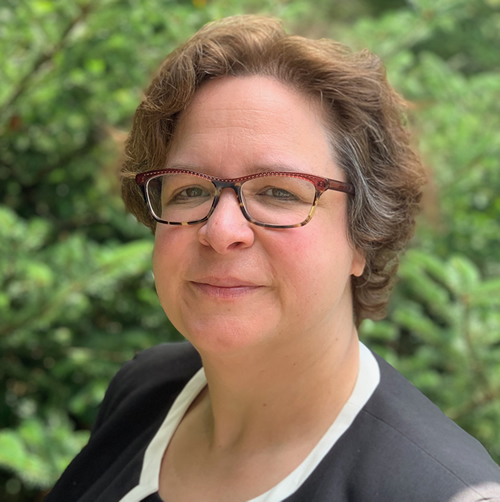
Jennifer Burris
Appalachian State University, United States
For facilitating systemic changes that have improved diversity and inclusion for her department, university and community.
Dr. Burris is the first woman Chair of the Department of Physics and Astronomy at Appalachian State University. One of her first accomplishments was to create a student inclusiveness advisory committee that evolved into the Student Inclusive Excellence in STEM club working to actively promote diversity and inclusion across all STEM departments at the University. Located in western North Carolina, about 34% of the 20,000 students at Appalachian are first-generation college students, Dr. Burris has worked to enhance her own understanding of diversity and inclusion to be able to create and implement initiatives and professional development opportunities that would have long lasting change for the faculty, staff and students.
Dr. Burris has worked to both increase the number of underrepresented populations within the department of Physics and Astronomy, to create a supportive environment for students, and through securing funds for programmatic and systemic change. Donation funds have helped create a food pantry. Dr. Burris has facilitated required training in bias and inclusivity for faculty and staff. She has also demonstrated a similar commitment in hiring staff and faculty from underrepresented populations. She has procured funding for creating and promoting diversity and inclusion on campus including a new million dollar NSF ADVANCE grant to expand this work across all STEM departments with trainings of administrators, chairs, and faculty, expanded professional development and mentoring and improving work-life integration resources and advocacy across campus. At a state level, she has been an advisory board member of the statewide BRIDGES Academic Leadership Program for Women and helped to reestablish the NC ACE Women’s Network to support all women in high education in North Carolina.
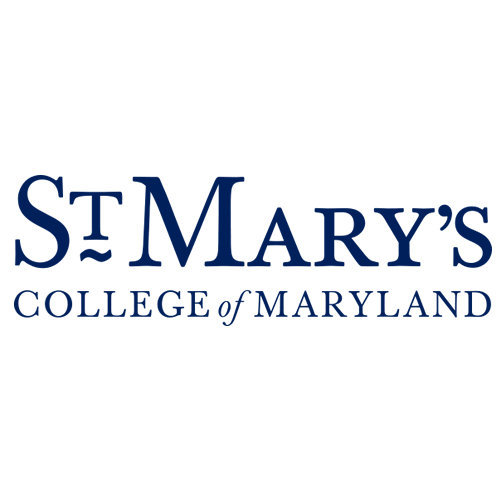
Department of Physics, St. Mary's College of Maryland
United States
For making long-term changes that improve diversity, equity and inclusion in its operations and culture.
About the Department of Physics, St. Mary's College of Maryland
Since hiring its first female faculty member in 2008, the Department of Physics at St. Mary’s College of Maryland achieved gender parity in 2019. The Department’s dedication to diversity also extends to the student population whose gender ratio exceeds the U.S. national ratio in physics. This is due in part to the Emerging Scholars Program (ESP). With funding from an NSF S-STEM grant, the ESP identifies students from underrepresented groups in their first semester of physics offering enrichment along with mentoring and access to a supportive peer group. In the program’s first 3 years, 93% of ESP participants persisted to the second semester course, compared to 76% of non-ESP students.
As described in Physics Today, the St. Mary’s College of Maryland Department of Physics, proactively fosters a culture of inclusivity. Physics faculty work with other faculty from the College's Educational Studies program to introduce required diversity and inclusion workshops into first-year physics courses. As part of the APS Inclusion, Diversity & Equity Alliance, faculty have jointly enacted a policy to include work on inclusion, diversity and equity in every one of its courses. They reinforce this through start-of-the-semester values-affirmation exercises for students and share research demonstrating how they can help combat stereotype threat. They have revamped courses to ensure the contributions in the physics and astronomy of members of underrepresented groups are included in discussions and faculty members structure group work and continuously monitor it to promote inclusive behaviors and to stop behaviors that run counter to inclusion.
2019 Winners
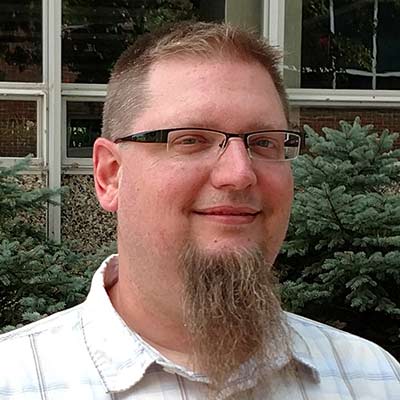
Jay Mathews
University of Dayton, United States
Dr. Mathews has a strong record of encouraging and fostering diversity in the field of optics and photonics. The committee recognizes his work to foster gender, racial, ethnic minority and socio-economic equality, as well as trying to provide opportunities for students who may be underserved in the optics community.
The committee was particularly impressed with the partnerships Dr. Mathews has created with Morehouse College, USA and Morgan State University, USA (both historically black colleges) and to St. Mary’s University, USA (a Hispanic serving institution). As the faculty advisor of the UD chapters of Society of Physics Students and Sigma Pi Sigma and within is his own research group Dr. Mathews demonstrates a commitment to mentoring women, Latinxs, African Americans and members of the LGBTQ community.
Learn more about Dr. Mathews' work, the Summer Research Program and other University of Dayton programs:
University of Dayton
UD Department of Physics
UD Department of Electro-Optics & Photonics
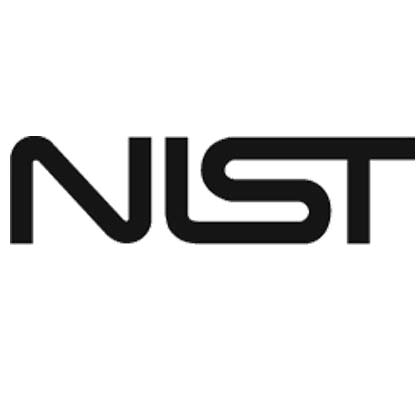
National Institute of Standards & Technology
United States
About the National Institute of Standards & Technology
The committee felt the work that NIST had done to realize their inclusivity core value “…to harness the diversity of people and ideas, both inside and outside of NIST…” is having significant results within the agency and is an excellent a model for other agencies, companies and universities.
Motivated by data showing that women and minorities compose decreasing fractions of personnel at higher promotional levels within NIST, a group of scientists and managers from across the agency developed Recommendations to Improve Equity in the Scientific and Engineering Promotions Process at NIST resulting in the creation of the Steering Group on Equity in Career Advancement. This Group evaluates unintended impacts to promotion and award opportunities for minority groups; unconscious or implicit biases within the agency; and disparities that can have a cumulative impact over the course of a career. The Group partnered with HR to build a curriculum of courses on inclusivity, implicit bias, trust, women’s success, and microaggression as well as add accountability for actions relating to inclusivity and equity to the performance plans of all senior leaders.
Read more About the work of the NIST Steering Group on Equity in Career Advancement.
2018 Winners
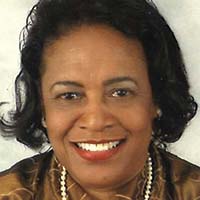
Arlene Maclin
Howard University, United States
Arlene is an educator, researcher, administrator and mentor. The committee recognizes her work in developing opportunities to expose underrepresented groups to STEM, specifically African Americans and women. She launched the first optical engineering program at a historically black university impacting hundreds of students and providing them a strong foundation for their education and future careers.
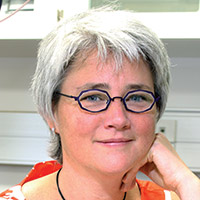
Frederique Vanholsbeeck
University of Auckland, New Zealand
Frederique was selected due to her advocacy for cultural and gender diversity throughout academia and is known for her passion of inclusivity as well as creating tangible outcomes. She established university-wide support for programs encouraging women to return to work after family leave as well as programs that support indigenous students.
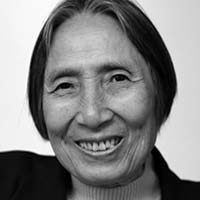
Ling-An Wu
Institute of Physics, CAS, China
Ling-An was selected for her dedication in empowering and supporting women and children in her region of China. Her work with the local OSA student chapter in developing programming for children of migrant workers as well as her focus on data collection to produce the first set of data on women in physics in China set her apart from the other applications.
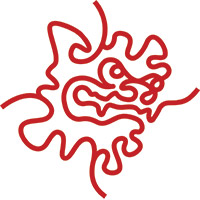
Okinawa Institute of Science & Technology (OIST)
Japan
About Okinawa Institute of Science & Technology (OIST)
The Okinawa Institute of Science & Technology known as OIST is recognized for their progressive policies in creating an inclusive environment. A few of the many items that stood out in their application are their development of a Vice President for Gender Equality on the university’s leadership team, an inclusive gender code of conduct, as well as their dedication in supporting dual career couples by creating an additional faculty or independent researcher position for a partner.
Selection Committee
Amol Choudhary, Indian Institute of Technology, Delhi, India
Lea Kopf, Tampereen Yliopisto, Finland
Frank Kuo, Mettler Toledo Autochem Inc., USA
Robert Ian Woodward, Toshiba Europe Ltd., UK
